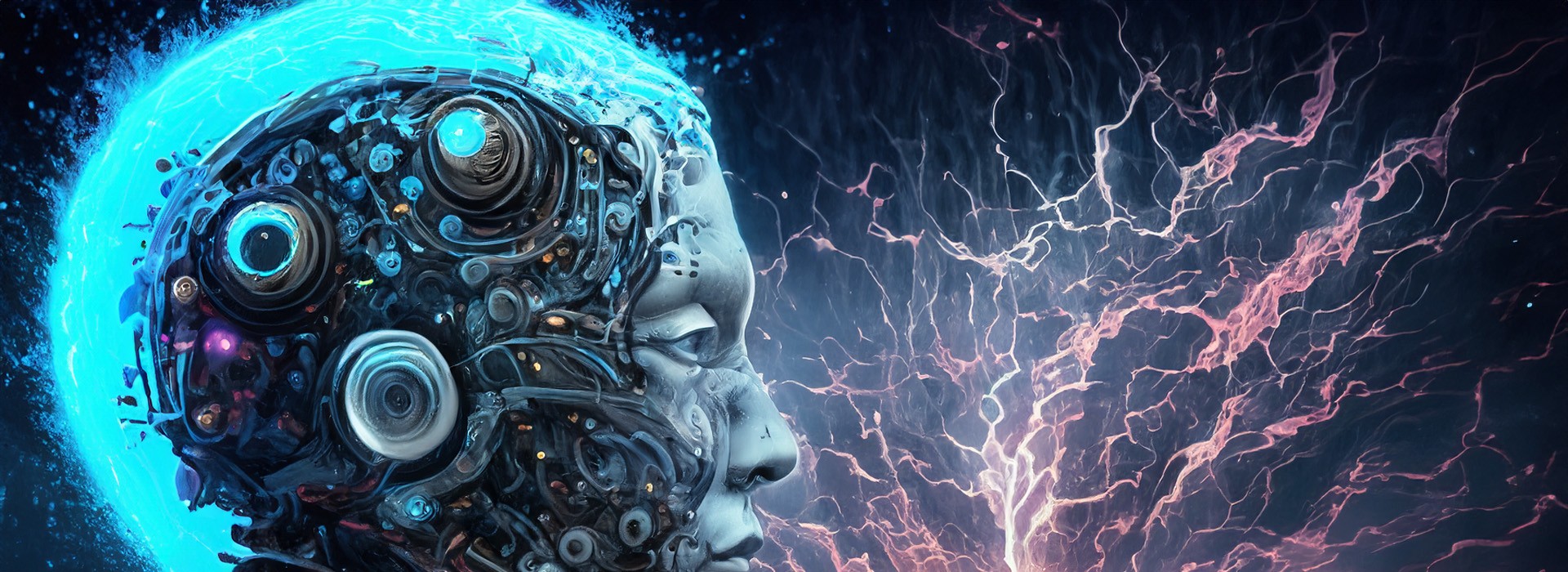The future is here, and apparently, it’s brighter than a dentist’s lamp. No more slogging through exams, no more sweating over essays, and authors can bin their typewriters—sorry, laptops. Why bother when your phone will happily spit out another “groundbreaking” novel before you’ve even made a cup of tea? School kids, once chained to textbooks, now just whisper “Alexander Graham Bell” to their laptop and—voilà!—a neat little essay materialises. Teacher none the wiser. Xbox time reclaimed.
We’re only paddling in the shallow end of this AI revolution. Artificial Intelligence hasn’t even kicked off its shoes yet, and already it’s rattling society’s cage. Imagine what it’ll be in five years. Ten. A century. Should we worry about our future being AI-guided—or will we lazily hand over the steering wheel and recline in the passenger seat, crisp packets rustling?
Writers, of course, like to believe we’ll be immune. After all, what could possibly replace our finely tuned metaphors and artful procrastination? But the line between human creativity and machine mimicry is smudging. Can AI now produce work to rival the greats? And, more unnervingly, will anyone care if it does?
Amazon seems to care—sort of. It’s capped authors at six uploads a day. Six. A day. No human, not even Dickens with a double espresso drip, could churn out six novels before breakfast. Clearly, the Kindle store has become a dumping ground for AI-authored sludge. At first glance, it’s hard to tell whether a book is written by a soulful human or a silicon-fuelled ghostwriter. By the time you spot an “author” who’s published 73 titles in a fortnight, you’ve already clicked “Buy Now.”
But let’s not panic. AI isn’t new. It’s been lurking since the dawn of computing. Alan Turing, back in 1950, proposed his famous “imitation game”—what we now call the Turing Test. Could a machine fool you into thinking it was human? For decades, the answer was a firm “nah.” But now? Well, sometimes even we can’t tell the difference, and we invented the thing.
Computers have already trounced us at chess. But chess, while brainy, is basically a very fancy game of rules. True creativity, that elusive spark, is a different beast. Can AI really dream? Or is it just a magpie, stealing and remixing what it finds? For now, humanity still edges ahead, but the gap is narrowing.
Cue the inevitable Hollywood panic. Remember WarGames from the 1980s? A teenager hacks into a military computer that mistakes global thermonuclear war for a video game. The climax: the computer learns that in nuclear war, “the only winning move is not to play.” A quaint notion—let’s hope no one wires ChatGPT into the nuclear codes. Then again, we once trusted Boris “Pinocchio” Johnson to run the country, so anything’s possible.
Revolutions always create winners and losers. Spoiler: the losers are usually the poorest. In the 1980s, manufacturing workers were gutted—steel, coal, shipbuilding, all replaced by cheaper imports. Communities were bulldozed in the name of “progress.” This AI revolution looks set to swing the axe again, only this time the victims might be wearing ironic glasses and clutching lattes. Graphic designers, filmmakers, sound engineers, journalists, and yes—even authors—may soon find themselves surplus to requirements. Why pay a human when a machine can generate fifty options in seconds and never needs lunch?
Still, it’s not all doom. Just look at the Beatles’ so-called “AI song.” The headlines screamed “Robot Lennon!” but in truth, it was still humans pulling the creative strings. AI merely helped polish old tapes and stitch things together. The voice, the writing, the playing—that was human. AI was the studio intern holding the cables. A reminder: the magic still starts with us.
And AI isn’t just busy with essays and Beatles remixes. In medicine, it’s already revolutionising how we diagnose and prevent disease. In climate science, it’s crunching the numbers faster than any human team could. These are life-saving, world-saving applications. We’d be fools to dismiss them.
But—and it’s a big but—creativity is under siege. The danger isn’t that AI will kill it outright, but that we’ll stop valuing human imagination. If every book, song, or painting becomes just another algorithmic remix, what happens to originality? Do we even notice the difference, or do we shrug and scroll?
Perhaps we’ll strike a balance. Let AI handle the grunt work, the endless reports, the fiddly data wrangling. Let humans keep the messy, maddening, glorious business of art. Or maybe AI will surpass us, and we’ll become quaint relics—like candle-makers in the age of electricity, muttering about “warmth” while the rest of the world basks in LED glow.
For now, though, the story isn’t over. We’re not yet obsolete, and AI isn’t yet omnipotent. Time will tell whether this revolution ushers in a golden age of enlightenment—or just a flood of mediocre eBooks clogging the Kindle store. Until then, sharpen your wits, polish your prose, and maybe—just maybe—hold on to that Xbox controller. You’ll need something to do while the robots finish your homework.
(Header made using Adobe AI)



